





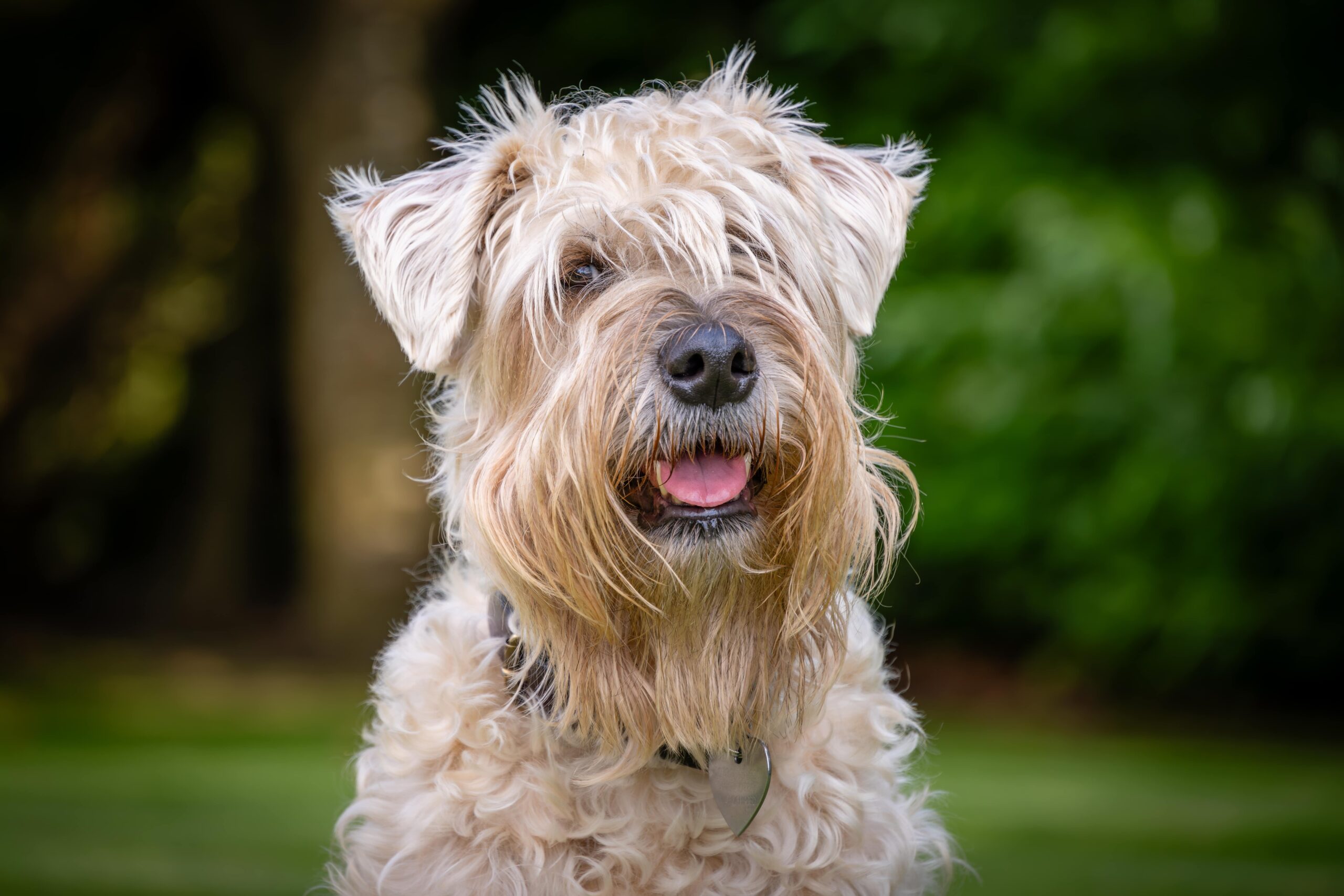
Small guard dogs can be just as effective as large breeds when it comes to home security. The best small guard dog breeds—like the Miniature Schnauzer, Jack Russell Terrier, and Dachshund—combine alertness, courage, and loyalty to protect your family. These compact yet fearless companions serve as reliable early warning systems, perfect for apartments, condos, or smaller homes where space and safety both matter.
When we picture a guard dog, most of us imagine a towering German Shepherd or a snarling Rottweiler stationed at the front door. It’s a story we’ve absorbed over time—that safety comes in size.
Big men. Big dogs. Big systems.
But here’s the question: does smaller mean weaker when it comes to security?
The answer is no, not even close.
I’ve seen a 12-pound terrier put the fear of God into a grown man. I’ve watched chihuahuas hold their ground like miniature Roman soldiers. Loyalty, courage, and presence—those aren’t size-dependent.
Look, small dogs are quick. Sharp. Devoted. Relentless. And their greatest advantage? They’re underestimated. That’s their edge and it makes them effective in ways most people never expect.
So yes, small dogs can protect your home. The trick is knowing what you need and understanding which breeds deliver because not all dogs can do the job.
There are several reasons someone might opt for a smaller guard dog breed:
The goal isn’t brute force—it’s deterrence. Small guard dogs excel at this psychological game, creating a security presence that makes intruders think twice.
Before diving into specific breeds, let’s talk about what traits matter in a home protection dog, regardless of size:
Temperament isn’t something you train into a dog; it’s built in. It’s a function of genetics, shaped by generations of breeding for certain instincts and behaviors. You can shape it, guide it, and work with it—but you can’t manufacture what’s not there.
A dog with solid nerves, good judgment, and a calm but watchful demeanor? That’s gold. Especially in a small package.
Protection isn’t just instinct—it’s shaped through consistent, purposeful training. And for that, you need a dog that wants to learn. A dog that pays attention when it counts. Not just when treats are on the table or when it’s convenient.
The best guard dogs are clear-headed, focused, and responsive—even under pressure. They take direction, adapt quickly, and respect the boundaries you set. Trainability is what turns raw potential into real-world performance.
Not every small dog has them. Some are lovers, not fighters—and that’s okay. But if you want a dog that will alert you to threats, stand their ground, and defend their turf, protective instincts are non-negotiable.
That doesn’t mean aggression. It means discernment, loyalty, and a natural drive to guard what’s theirs.
A smart dog picks up on routines, senses changes in energy, and notices when something’s off. It means quicker training, smoother communication, fewer mistakes, and better decision-making when it matters.
The root of it all. A loyal dog doesn’t just bark because something moved outside. They protect you, your space, and your family.
Loyalty is the force behind every action—a deeply ingrained sense of belonging and duty that turns even the tiniest companion into a fierce protector

The Australian Terrier was bred for tough jobs: hunting snakes, chasing off vermin, and holding down the homestead. They’ve got grit in their DNA.
What makes them excellent small guard dogs is their unshakable alertness and bold attitude. They don’t just bark at shadows—they challenge intruders like they’re twice their size.
Plus, they’re loyal to a fault, bonding closely with their people and staying laser-focused on their territory.
Training comes fairly easily with this breed, thanks to their intelligence and eagerness to please—but consistency is key.
You’ll want to channel their natural energy into structured tasks, or they’ll find their own (often noisy) ways to stay busy.
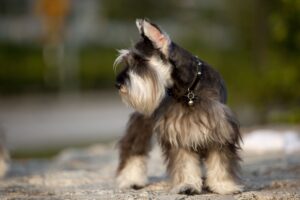
The beard. The eyebrows. The presence. The Miniature Schnauzer may look like a gentleman, but make no mistake—this dog is all business when it comes to guarding its home. Naturally alert and highly vocal, they don’t miss a thing.
They’re quick learners, intensely loyal, and thrive with structure. Their watchdog instincts are strong, but what sets them apart is their intelligence. They’re problem-solvers. Give them a job, and they’ll own it.
Perfect for families who want a small, adaptable dog with big energy and an even bigger sense of duty.
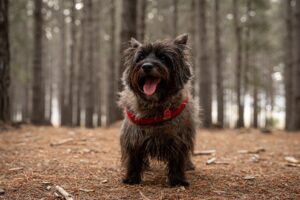
This breed gave us Toto from The Wizard of Oz—but there’s more to Cairn Terriers than movie charm. Cairn Terriers are sharp, scrappy, and fiercely territorial.
They’re small but bold, with a bark that punches above their weight. They’re also very independent, which means they won’t wait around for you to take the lead if they sense a threat. They react fast and stay on alert.
They do best with firm, clear training—and a healthy dose of daily stimulation. Otherwise, they’ll invent their missions (hello, couch destruction).

Bred to sit on monastery walls and act as early warning systems for Tibetan monks, these dogs were literally designed for guard duty—on a smaller scale.
Tibetan Spaniels are more cat-like than your typical dog: observant, self-contained, and incredibly loyal to their humans. They won’t attack, but they will alert, and they’re excellent at spotting anything that’s “off.”

Nicknamed the “American Gentleman” for their tuxedo-like coat and manners, Boston Terriers are surprisingly good watchdogs.
They’re naturally alert and quick to bark at unfamiliar sounds, people, or movement. What they lack in aggression, they make up for in fast response and strong attachment to their people.
With their smarts and eagerness to please, they’re easy to train. And their social nature means they adapt well to busy households—great for urban settings where you want protection without unpredictability.
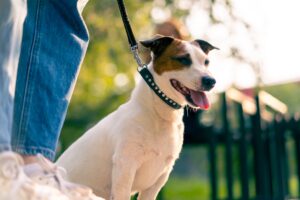
Jack Russells are high-octane, high-drive, and highly opinionated. But if you want a small guard dog with endless stamina and zero fear? Jackpot.
They were built to hunt—and it shows. They’re constantly scanning, moving, analyzing. Combine that with a strong bark and natural suspicion of strangers, and you’ve got a pint-sized perimeter alarm.
Not ideal for first-time dog owners, but with the right leadership and plenty of structure, they’re a powerful, protective little force.
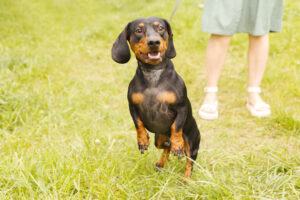
Don’t laugh—they’re not just cute sausages. Dachshunds were bred to dive into badger dens. That alone tells you everything about their courage.
They’re surprisingly fierce, incredibly vocal, and deeply devoted to their people. Once they bond, they guard with the heart of a lion.
They can be a little stubborn, which means training takes patience—but the payoff is a loyal, alert, and highly protective companion.
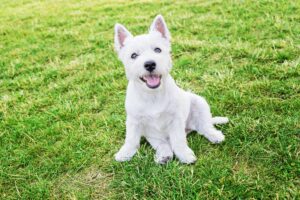
Westies are classic watchdogs: loud, aware, and deeply invested in what’s happening around them. They’ve got a cheerful exterior but underneath? All business.
They don’t hesitate to challenge anything unfamiliar—human, animal, or otherwise. And once they alert, they stay in the game until the “threat” is gone.
Independent but trainable, they do best with confident owners who can channel their energy. When dialed in, they’re assertive, reliable protectors.

With a face like a grumpy old man and a mind like a hawk, the Brussels Griffon is no joke.
They’re intensely bonded to their humans and take their watchdog duties seriously—think tiny security guard with zero tolerance for sketchy behavior.
Highly intelligent and emotionally sensitive, they pick up on changes fast and bark to let you know something’s up. Small in size, big in personality, and ready to defend.
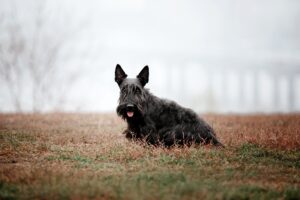
Scotties are reserved, dignified, and tough as nails. They don’t go looking for trouble—but they’re ready when it shows up.
They’re natural watchdogs: territorial, brave, and always aware. They’re not overly vocal, but when they bark, it’s with purpose.
Independent by nature, they need early and consistent training—but once you’ve earned their trust, they’re steady, devoted defenders with strong instincts.
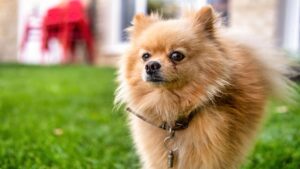
Yes, they’re fluffy. Yes, they’re tiny. But underestimate them at your own risk.
Pomeranians are loud, proud, and absolutely fearless. They’ll bark at anything unfamiliar, and they don’t back down easily. Their small size makes them perfect for apartment or condo living but their energy is anything but low-key.
Highly alert and intensely loyal, they make excellent early warning systems for the home. With solid training and proper boundaries, they’re sharp little sentries who won’t miss a thing.

While Chihuahuas often get stereotyped as nervous or yappy, they’re incredibly loyal and protective—especially when bonded tightly to one person or family.
Their small stature makes them portable, sure, but their presence? That’s oversized. Chihuahuas are fearless watchdogs. They’ll alert you to everything—and we mean everything—and their intensity makes them surprisingly effective deterrents.
They’re not afraid to stand their ground, no matter who’s at the door. Just make sure their boldness is balanced with solid training, because once a Chihuahua decides something’s a threat, they won’t back down without your say-so.

Shih Tzus were bred as palace guards for Chinese emperors. Their job? To sit quietly, watch attentively, and be alert to any intrusion. That instinct is still baked into them.
While they’re not aggressive by nature, they are vigilant and loyal. They’ll raise the alarm without hesitation and stick to your side like a fuzzy little shadow.
Their affectionate nature makes them excellent companions but their alertness earns them a seat in the guard dog hall of fame.
Small dogs have potential, but it’s your job to shape it. So, here’s how to go about it:
Puppies are sponges. What you allow, ignore, or reward in those early months will set the tone for their adult behavior. While you don’t want to encourage aggression, you do want to start reinforcing confidence, boundaries, and responsiveness early on.
Basic obedience training, commands, and impulse control all lay the groundwork for future protection work—even if it doesn’t look like it right away.
This one gets misunderstood a lot. Socialization doesn’t mean “let your dog run up to every person and dog at the park.” It means controlled exposure to different people, environments, and experiences.
A well-socialized dog can think clearly in unfamiliar situations—and that’s exactly what you want from a trustworthy guard dog.
Praise, play, treats—use what motivates your dog to reinforce behaviors you want. Punishment shuts down thinking, but reinforcement builds confidence.
When they alert appropriately, reward them. When they follow through on a command, let them know they nailed it. Clear, consistent communication is your biggest asset.
Working breeds—big or small—need a job. Without one, they’ll invent something… and it’s usually chaos.
Give your dog structured tasks that tap into their guarding drive. Patrol routines, alert games, scent work, or doorbell drills.
When your dog knows their role in the home, they lean into it with pride—and that’s where real security starts.
No dog is perfect, and even the small breeds come with challenges:
These aren’t deal-breakers but deal-makers because they shape how you train and live with your dog. Awareness makes everything easier.
Most people screw this up because they choose the wrong dog for the wrong reasons.
They pick a breed based on looks or what they saw on Instagram, then wonder why their “guard dog” hides under the bed when someone knocks.
The right small guard dog, properly trained, will deliver 10X more value than the wrong large breed that you can’t control.
Here’s your decision framework:
The ROI on this decision is massive. Get it right, and you have security, companionship, and peace of mind for potentially 15+ years. Get it wrong, and you’re looking at stress, behavioral issues, and a dog that can’t do the one job you got them for.
Your next move is simple: Pick a breed that aligns with your lifestyle.
Want to skip the guesswork and get it right the first time? Vanguard Protection Dogs specializes in selecting and training protection dogs to fit your life.
We’ll match you with the right dog, implement proven training methods, and ensure your new security partner integrates smoothly with your household.
Contact Vanguard Protection Dogs today and turn the odds overwhelmingly in your favor.